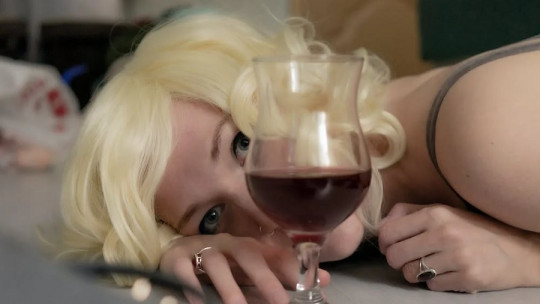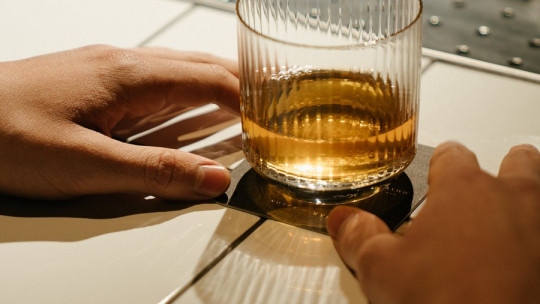
Relying on home remedies to overcome alcoholism is entering a labyrinth of pseudoscience, superstition and, in many cases, pure scam. Accepting the idea that an infusion, a spice or any other miraculous concoction can cure a disease as complex and profound as alcoholism is not only naive, but dangerous.
These “remedies” not only lack a solid scientific basis to support their effectiveness, but they also distract encourage people to seek legitimate and proven treatments. Alcoholism is a serious medical condition that requires professional intervention, not magic solutions from a charlatan’s sleeve.
By promoting these false cures, we irresponsibly play with the health and well-being of those who are desperate to find a way out of their addiction, selling them nothing more than smoke disguised as hope. True recovery lies in therapeutic support, personal commitment, and often medical treatments, not in the depths of a cup of herbal tea.
Home remedies to stop alcoholism
Addressing alcoholism with “home remedies” is like trying to put out a forest fire with a glass of water. Although well-intentioned, these simplistic methods seriously underestimate the complexity and severity of the problem. Alcoholism is not just a bad habit that can be changed with will and some homemade tricks; It is a serious and multifactorial disease that profoundly affects the physical, mental and social health of a person.
These are some of the false “home remedies” most popular to quit alcohol, which have absolutely no effectiveness (they are a scam):
First, let’s understand that alcoholism, or alcohol use disorder, is a recognized medical condition. It is characterized by a physical and psychological dependence on alcohol, where the person loses the ability to control their consumption despite the negative consequences.
This level of dependency arises from profound changes in the brain, influenced by genetic, psychological and environmental factors That is to say, we are talking about an intricate tangle of causes that cannot be undone simply by changing the brand of tea or following a miraculous detox diet.
Overcoming alcoholism requires a comprehensive approach that addresses all of these aspects. This includes, but is not limited to, professional psychological therapy to help the person understand and manage the underlying reasons for their use, medical treatment to address physical dependence, and ongoing support to prevent relapse.
It is a process that involves a serious commitment to change, a deep understanding of the problem, and often a team effort that includes health professionals, support groups, and loved ones.
Besides, alcoholism frequently coexists with other mental health conditions, such as depression or anxiety, which further complicates its treatment. Ignoring these conditions and relying on home solutions is not only ineffective, but potentially dangerous, as it can lead to neglect of serious problems that need medical intervention. In short, while “home remedies” may offer temporary comfort or a sense of doing something to combat the problem, they are not a viable solution to alcoholism.
Overcoming this illness requires a clear understanding of its complexity, the willingness to seek professional help, and a deep commitment to the recovery process. It is a path that can be long and challenging, but with the right support, it is a path to a healthier, more fulfilling life.
Home remedies to stop drinking alcohol without realizing it
Searching for “home remedies to stop drinking alcohol without realizing it” is like trying to navigate a storm without a compass or map, hoping not to get lost.
This approach is not only ineffective, but also underestimates the complexity of alcoholism and the importance of support in the recovery process. Essentially, attempting to quit alcohol secretly, without the knowledge or support of friends, family or professionals, significantly increases the risk of relapse. Let’s see why.
First, alcoholism is not simply a bad habit that can be changed overnight with will and some home tricks. It is a chronic disease, with deep roots in the biology, psychology and social environment of the individual
Trying to handle it alone, especially “on the sly,” means fighting a formidable adversary without backup. It’s like facing an army alone: the odds are against you. Furthermore, recovery from alcoholism is more than just stopping drinking. It involves addressing the underlying reasons that led to problematic use in the first place, such as stress, anxiety, depression, or relationship problems.
Without professional help, these underlying issues may remain unresolved, lurking beneath the surface and increasing the likelihood of relapse It’s like putting a patch on a broken pipe without fixing the leak: the problem will still be there, ready to burst again.
Attempting to quit alcohol without support also deprives the person of the tools, strategies and resources that mental health professionals can offer.
Finally, the stigma associated with alcoholism It often leads people to try to handle it secretly, but it is precisely this stigma that must be fought. Asking for help is an act of courage and the first step towards true recovery. Support from loved ones not only provides an emotional security system, but also increases personal responsibility and motivation to move forward.
Home remedies to hate alcohol
Trying to use “home remedies to hate alcohol” is like trying to empty the ocean with a glass.
Alcoholism is a deep-seated condition, fueled by a mix of physical dependence, psychological factors and often underlying problems that go far beyond a simple desire for alcohol. Let’s see why these home remedies fall short and what is the path to a real solution.
First, it is essential to recognize that alcohol is an addictive substance that can create a strong physical and psychological dependence. This dependence is not simply dissolved by induced aversion ; requires a more introspective and transformative approach.
True change begins with deep reflection on the negative impact alcohol has had on your life, recognizing everything from damaged relationships and missed opportunities to health problems. It’s looking the monster straight in the eyes and deciding that you no longer want to play at being its friend.
Besides, overcoming alcoholism involves constantly reviewing and reinforcing your motivations for change Is it to improve your health? To reconnect with loved ones? To achieve goals that alcohol has prevented you from pursuing? Keeping these motivations at the forefront is like having a lighthouse guiding your ship through the storm, reminding you why you started this journey in the first place.
Changing your lifestyle is also a cornerstone in this process. Alcohol is often used as a coping mechanism to deal with stress, anxiety, or boredom. Building a lifestyle in which you do not need alcohol to deal with psychological discomfort involves developing new coping strategies, from relaxation and mindfulness techniques to hobbies and physical activities that fill that void in a healthy way. It is creating an environment in which alcohol is not only unnecessary, but also undesirable.
“Grandma’s recipe” to stop drinking alcohol
Although popular wisdom can offer comfort and useful advice for various aspects of life, when it comes to a complex illness like alcoholism, relying on home remedies without a scientific basis is as effective as trying to heal a broken leg by dancing the macarena.
The real “recipe” for overcoming alcoholism, and perhaps the only grandma folk wisdom that really applies here, is recognize the importance of asking for professional help when it is clear that the problem is beyond you
Medical and mental health professionals are equipped with the tools, knowledge and strategies necessary to address both the physical dependence and the psychological aspects of alcoholism. This may include therapy, rehabilitation programs, support from recovery groups, and in some cases, medication.








